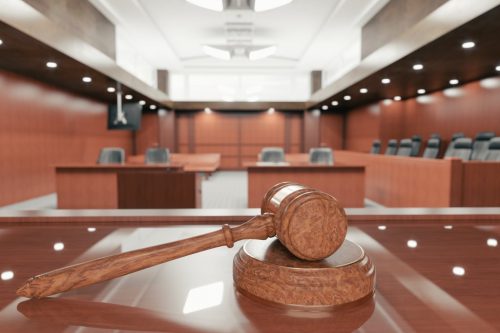
By Praniti Gulyani
AUSTIN, TX— A report, entitled “Drag: As American as Apple Pie,” released by the Human Rights Campaign, defines “Drag” as a performance art that uses costumes, makeup, and other tools to present exaggerated forms of gender expression to critique gender inequalities and imagine a transformational future where people are truly free in how they express themselves.
But, according to a statement issued by Fair and Just Prosecution, “Texas Senate Bill 12 (SB 12) if allowed to stand would create a broad and vague category of criminalized speech called ‘sexually oriented performances’ with no exception for those that have artistic, literary or political value.”
The statement notes “the law, which was crafted to target drag performers, would penalize individuals and business owners who host performances where anyone under 17 might be present, regardless of whether parents provide consent.”
Spotlighting prominent efforts made to oppose the standing of SB 12, the statement said, “62 public safety and criminal justice leaders filed an amicus brief urging the U.S. Court of Appeals for the Fifth Circuit to affirm a lower court’s order holding that S.B. 12 is unconstitutional and unenforceable.”
As per the press release, the signatories included “current and former elected prosecutors and law enforcement leaders, state and federal judges, state Attorneys General, U.S. Attorneys and U.S. Department of Justice officials” who agree the law might result in a certain misdirection of important resources and lead to “an undermining of public safety by using inherently limited law enforcement resources and eroding trust in the justice system, particularly among vulnerable groups of people.”
Miriam Krinsky, executive director of Fair and Just Prosecution, the organizer of the brief, and a former federal prosecutor, argued, “Freedom of artistic expression is a cornerstone of a democratic society; when we specifically target and criminalize performances by members of the LGBTQ+ community, we betray the fundamental values that our legal system is meant to uphold and erode community trust in the process.”
Expressing her concern over the misuse of important resources, Krinsky emphasized, “By enacting this legislation, Texas lawmakers are sending a chilling message that law enforcement should be more concerned with oppressing vulnerable communities than devoting scarce resources to addressing serious criminal activities.”
Additionally, Mecklenburg County (Charlotte, NC) Sheriff Garry McFadden, a signatory to the brief, said the law might lead to an overlooking of serious criminal issues, noting, “Our limited law enforcement resources need to be used to address the most serious crimes in our communities like fentanyl deaths and gun violence, instead of trying to monitor public performances for content that some individuals may find offensive.”
Pima County (Tucson, AZ) Attorney Laura Conover, another signatory to the brief, said the law might inadvertently lead to violent intra-communal uprisings, adding, “When we oppress vulnerable people in our community, we are substantially increasing their risk for violence, making us all less safe.”<a href=”http://davisvanguard.networkforgood.com”><img class=”alignnone size-full wp-image-118387″ 







